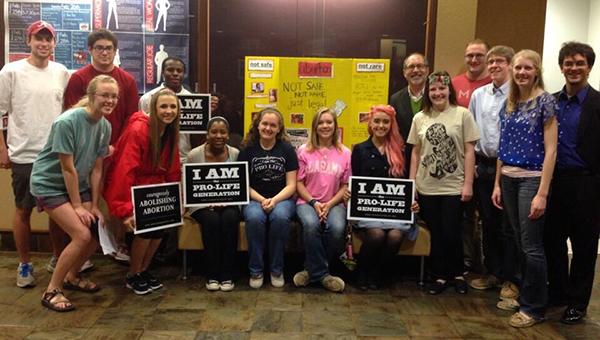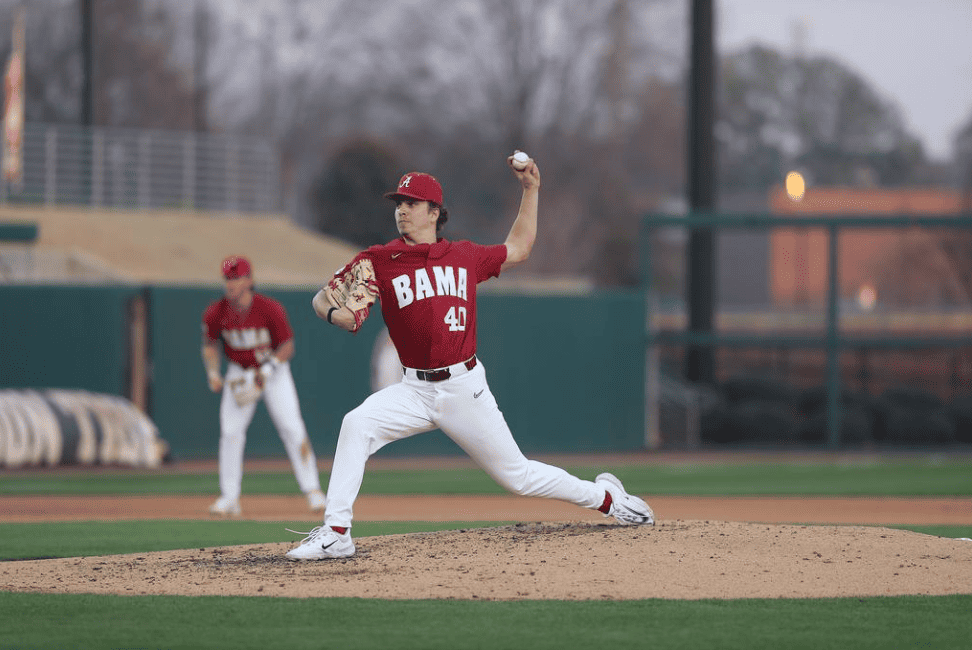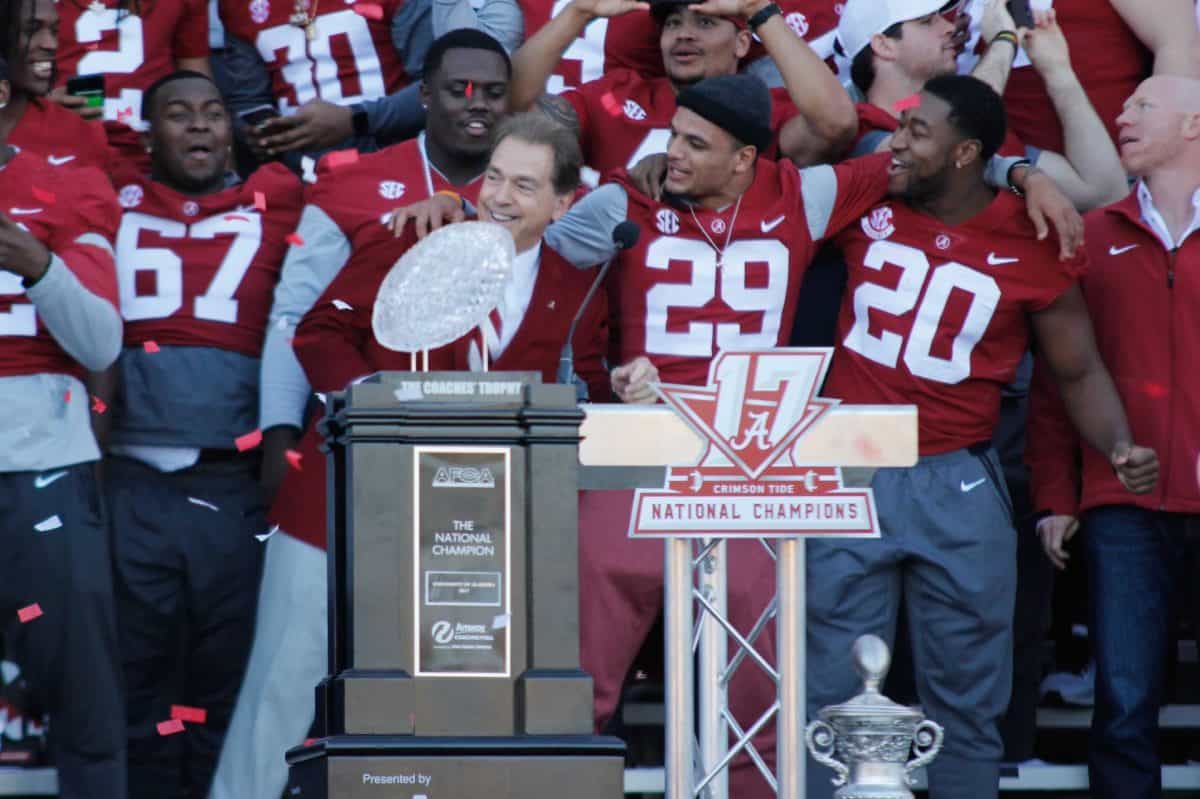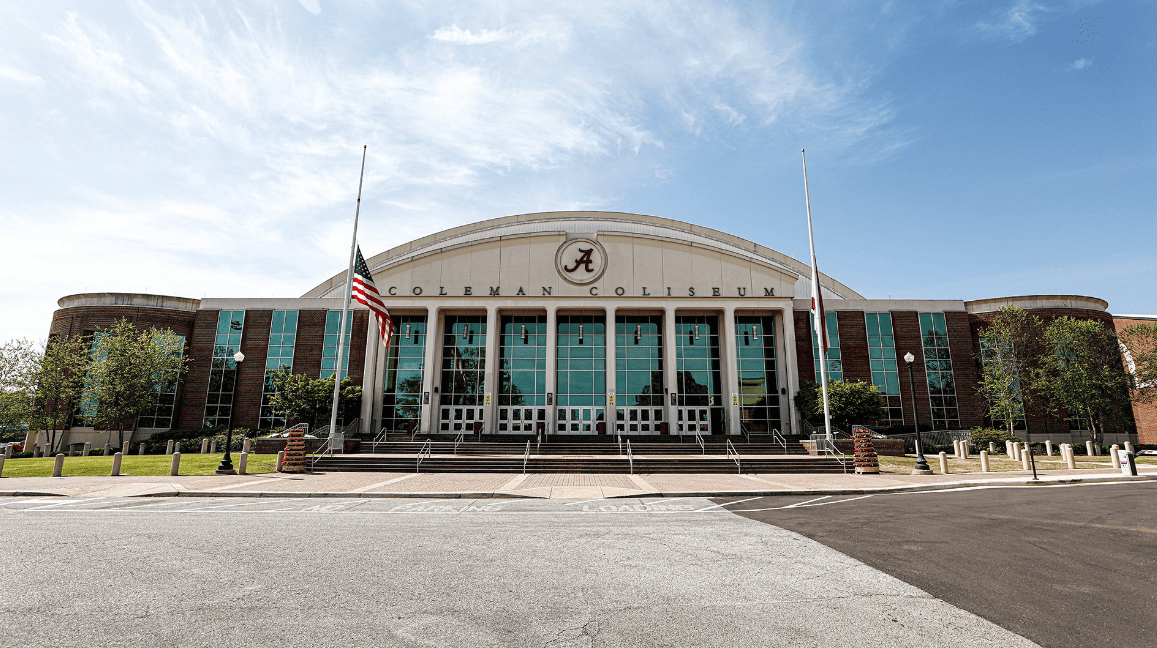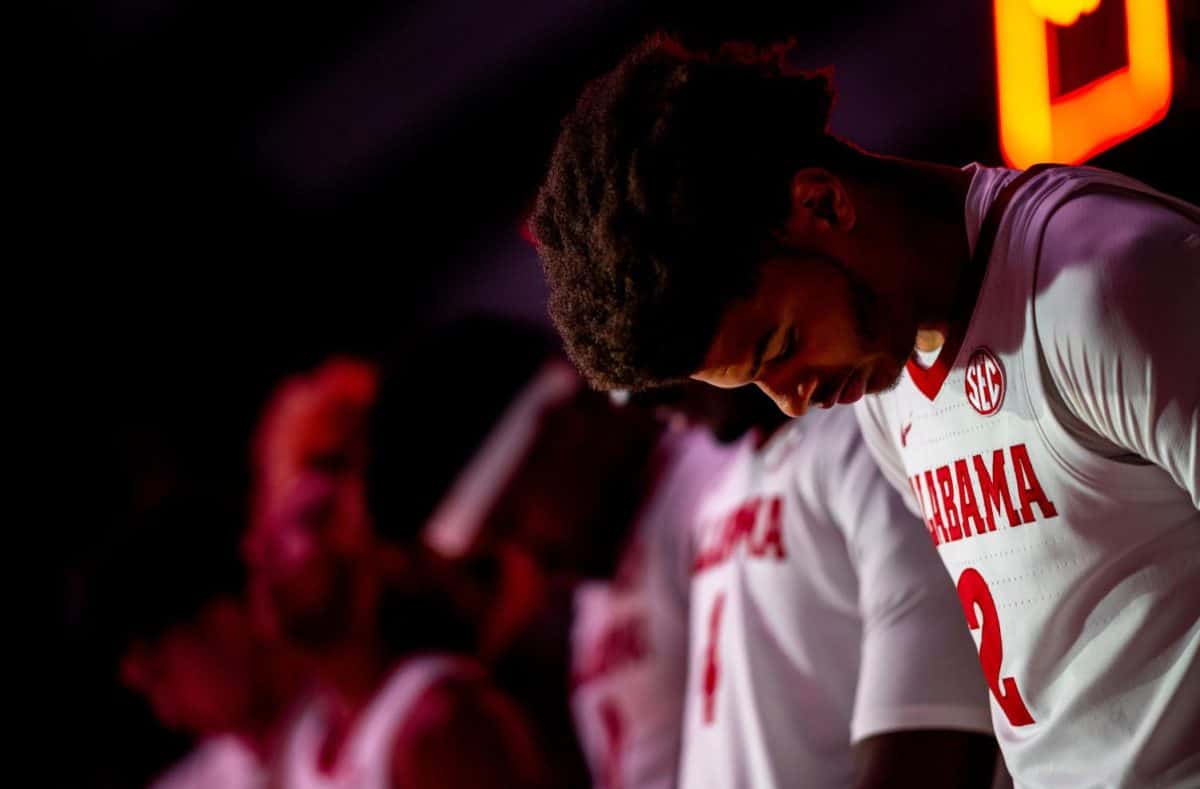In April 2013, Bama Students for Life hosted the Genocide Awareness Project on the Quad. When the Alabama Alliance for Sexual and Reproductive Justice attempted to counterprotest by handing out flyers around the display, they were asked to leave because they did not have a Grounds Use Permit.
In February 2014, Bama Students for Life set up a display in the Ferguson Center stairwell display case. Before their time slot was up, Joe Puchner, a sophomore majoring in math and Spanish and a member of Bama Students for Life, discovered Ferguson Center officials taking down the display, saying they had received complaints about it.
“We just thought it was a fight that we had ground against and needed to be done,” Puchner said. “It’s not just a pro-life/pro-choice issue. If anyone can say, ‘This display case offends me,’ that’s sort of a problem to just take it down.”
According to a statement from Cathy Andreen, director of media relations, the director of the Ferguson Center apologized and promised the group they could work out a date for the display to be put back up.
“The director of the Ferguson Center contacted Bama Students for Life and apologized to them for removing the display two days before their reserved time had expired,” Andreen said. “He offered them two options for putting their display back up to complete their 30-day reservation. They agreed on a date and put the display up for two days.”
Despite the display being put back up, Puchner said the incident has had a lasting effect on the way the Ferguson Center operates. For example, the case that held their display no longer exists, something Puchner said could have been related to the above incident.
“That sort of defeats the purpose of a university, a place where those ideas are supposed to be explored and shared, and there’s no better place to do that than a display case or handing out flyers on the Quad while another group is protesting,” he said.
Sarah Banning, president of Alabama Alliance for Sexual and Reproductive Justice and a sophomore majoring in English, said the conflict in April 2013 has continued to affect the group’s endeavors.
“After that happened, we were a little more cautious in all of our events from then on, so most of the stuff that we do is tabling events in the Ferg and that sort of thing,” she said.
Banning said the club’s tactics have changed in other ways in addition to hosting tabling events rather than protesting. She said she now likes to wait for people to approach her table rather than hand out a flyer to everyone who walks by.
“I feel like that reinstates people’s autonomy and allows them to engage in free speech how they would like to engage in it,” she said.
Banning said the lack of further conflict with the administration over free speech regulations has more to do with what students are willing to risk rather than an agreement with the policies.
“I think there has been an avoidance because most college students are understandably not willing to be arrested,” she said. “There runs this line of, ‘How can you be an activist with that hanging over your head, and what privileges do you need to come to the table with in order to take that burden on?’”
She said it is important that students feel safe on their own campus in addition to being able to express their beliefs.
“It’s difficult because if no one took those risks then nothing would get done, but I think it’s very much a personal decision whether or not you’re willing to take those risks,” she said.

